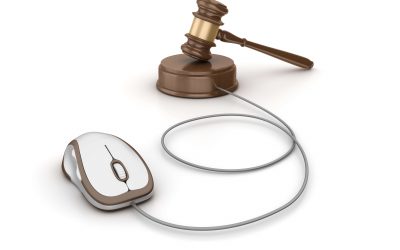
Why is the .LAW Domain Extension restricted?
Your domain name is an essential part of your online branding. Having a domain registration and management strategy in place is critical in securing your...

How to eliminate “not secure” browser warnings on your .law website: SSL certificates
Security challenges rank among the most pressing issues of modern times, and creating a trusted environment is essential when doing business online. To...

Google Calendar Appointment Scheduling vs. Calendly
Google Calendar is an integrated cloud-based calendar that can help you schedule meetings quicker, share calendars with your team, and stay on top of tasks...

Why a verified .law domain name is worth the investment
News From the Legal Expert in OctoberHere’s a scenario I run into repeatedly: A colleague asks if it is worth paying over $100 for a verified domain instead...

Even the best content needs the right audience
Just because you publish high-quality content on your website does not mean potential clients will easily find it. The ultimate goal of creating quality...
Answered: Why Should Lawyers Switch to a .LAW Domain
If you still haven’t registered your own .LAW domain, we highly recommend reading on. Thirty years ago, iconic generic Top-Level Domains (gTLDs) like .COM were the only option if you wanted to build a website for your business. Back then, a law firm didn’t have...
Does Your Law Firm Use Your Website as an Advertising Platform?
News From the Legal Expert in MayI believe that solos and small to mid-size firms fall into three categories when you review their web strategy. Those who view their website as an advertising platform to acquire new clients, those who view it as an online brochure,...
How to eliminate “not secure” browser warnings on your .law website: SSL certificates
Security challenges rank among the most pressing issues of modern times, and creating a trusted environment is essential when doing business online. To protect privacy and ensure online communication is secure, businesses worldwide are stepping up their security by...
Should a Lawyer Use Gmail?
Besides the fact that sending an email from a free Gmail email address doesn’t look very professional, your email could also land in the spam folder. Read more to find out more.How to look unprofessional Imagine the following: You send a potential client that...
How important is loading speed for your legal website?
News From the Legal Expert in AprilA friend asked how important it is for her firms' website is to be fast. As a general rule, the performance of any website is a significant factor in any online venture. In other words, you want your site to load quickly. This is...
The Legal Consultation Game Has Changed
Video conferencing tools feel like they are a dime a dozen, but which one of the conferencing platforms will provide the highest standard of security for legal consultations with your clients?
Act before it’s too late: Google is changing the game (again)
In the past, Google explained that the world's leading search engine provider considers over 200 unique ranking signals to determine how a web page will rank. A ranking signal is any characteristic of a website that search engine algorithms consider to calculate your...
How many domains does my law firm really need?
News From the Legal Expert in MarchHow many TLDs does my firm really need? Great question. If you value your firm's name, your partner's name, and want to protect your brand, then the overall answer would simply be all of them. Well, maybe not every single...
How Can You Manage Your Domain Portfolio?
News from the Legal Expert in FebruaryMany law firms don't exercise control over their domain portfolios. That is an issue that causes major problems. What does this mean? Your firm owns or uses different names registered by different people, with different contacts...
Does a .LAW domain help with search engine ranking?
The market for legal services is very competitive. The good news: the change from .COM to .LAW can positively affect law firms’ online traffic and lead them to the top of Google’s search results.









